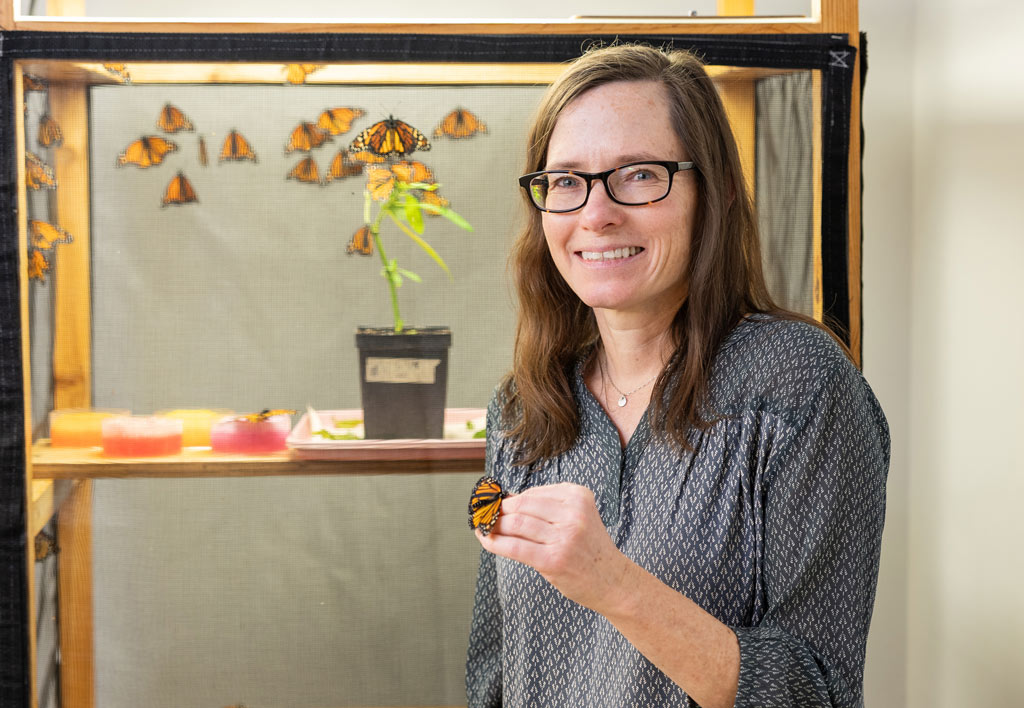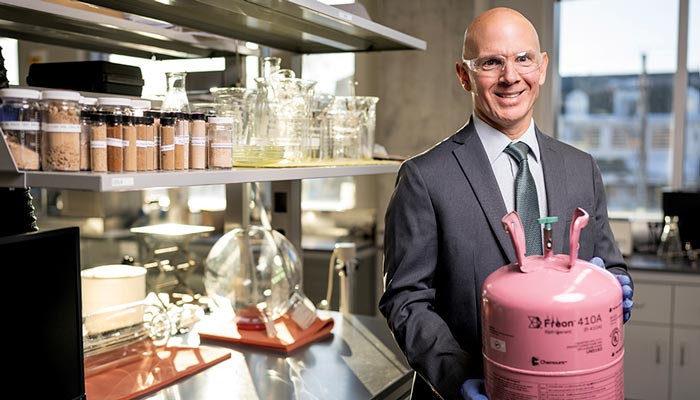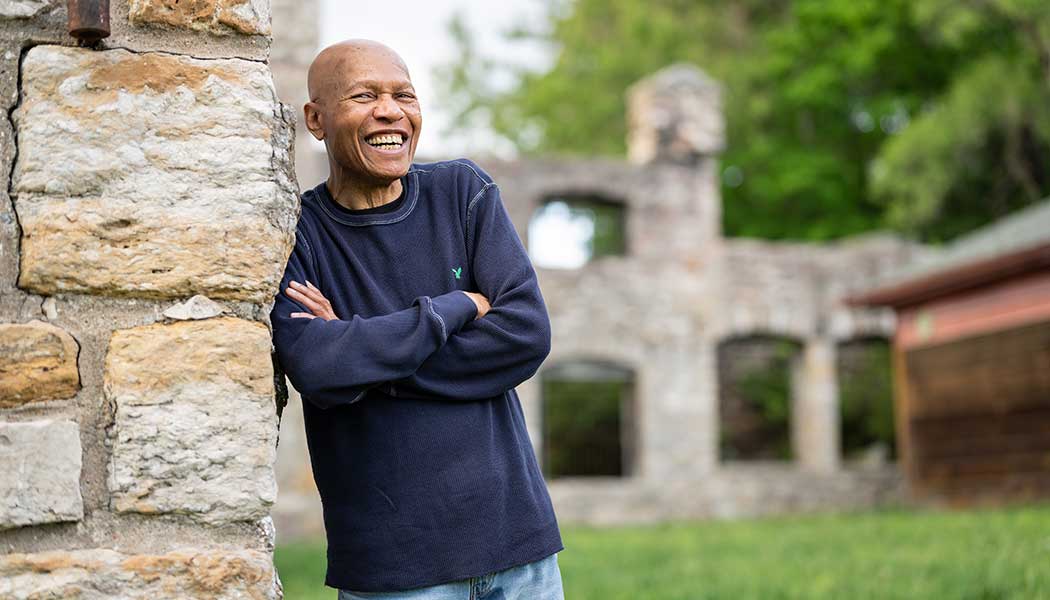Monarch metamorphosis: New leadership for KU’s Monarch Watch
Butterfly researcher Kristen Baum succeeds founder Chip Taylor at campus-based conservation and education initiative.

Monarch Watch, the education, conservation and research program founded by KU professor Orley “Chip” Taylor in 1992 to enlist thousands of citizen scientists to help study the migration and habitat of the monarch butterfly, transitioned to new leadership in November with the arrival of biologist and monarch researcher Kristen Baum.
Formerly a professor of integrative biology and associate dean for research at Oklahoma State University, Baum has studied monarchs and other pollinators in the Great Plains for more than 25 years, focusing on how land use and management practices affect distribution and abundance of monarchs and the milkweed plants that are key to their survival.
“I’ve participated in several Monarch Watch programs over the years, including tagging monarchs as part of my research and creating a Monarch Waystation in my home,” Baum says, referring to the Monarch Watch effort to create backyard butterfly habitats with milkweed and nectar-producing plants that monarchs depend on during their spring and summer breeding seasons and their annual fall migration. More than 46,000 Waystations have been registered with Monarch Watch across North America, and the campus-based group and partner nurseries nationwide have distributed more than 800,000 free milkweed plants since 2015.
“Under Chip’s leadership, Monarch Watch has developed an international reach through research, education and on-the-ground conservation efforts that have benefited the monarch butterfly, as well as other pollinators and wildlife,” says Baum, who also serves as senior scientist at the Kansas Biological Survey & Center for Ecological Research and as a professor of ecology & evolutionary biology. “I’m honored to have been selected to lead Monarch Watch and build on these efforts that have been decades in the making.”
Taylor, professor emeritus of ecology & evolutionary biology, marked his retirement from Monarch Watch at the end of 2022 with a $1.4 million gift from him and his wife, Toni, to help establish the Chip and Toni Taylor Professorship in support of Monarch Watch, which he co-founded with local high school science teacher Brad Williamson as a research project. Taylor and Williamson began by recruiting volunteers to capture monarch butterflies each fall and affix tags to their wings. The tags emblazoned with KU’s return address urged anyone recovering a butterfly along its migration route to Mexico to mail the tag to campus, furnishing data that helped Taylor unravel the mystery of how these butterflies migrate thousands of miles each year. Monarch Watch volunteers have tagged more than 2 million butterflies, according to Taylor’s estimates.
“It’s no surprise to me that the first research project I did on monarch butterflies has led to this,” he said when the Taylors seeded what they hope will become a $3 million professorship. “For me, it’s important that we sustain the monarch migration. The loss of monarchs would mean that we have lost habitats that support a large number of species ranging from important pollinators to hawks and owls. It’s all about sustaining the environment that sustains us.”
Steven Hill is associate editor of Kansas Alumni magazine.
Photo by Steve Puppe
/




